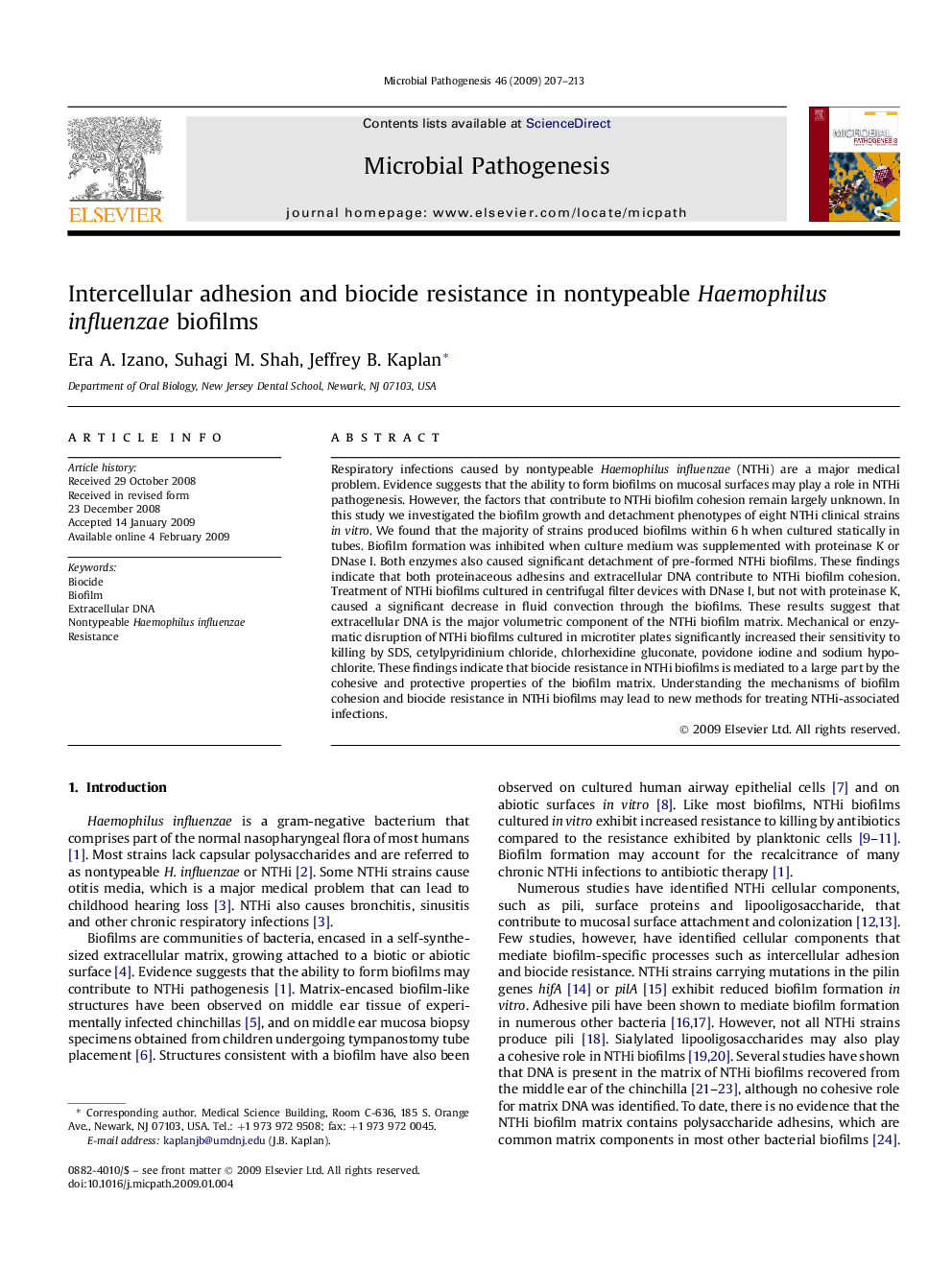| Article ID | Journal | Published Year | Pages | File Type |
|---|---|---|---|---|
| 3417042 | Microbial Pathogenesis | 2009 | 7 Pages |
Respiratory infections caused by nontypeable Haemophilus influenzae (NTHi) are a major medical problem. Evidence suggests that the ability to form biofilms on mucosal surfaces may play a role in NTHi pathogenesis. However, the factors that contribute to NTHi biofilm cohesion remain largely unknown. In this study we investigated the biofilm growth and detachment phenotypes of eight NTHi clinical strains in vitro. We found that the majority of strains produced biofilms within 6 h when cultured statically in tubes. Biofilm formation was inhibited when culture medium was supplemented with proteinase K or DNase I. Both enzymes also caused significant detachment of pre-formed NTHi biofilms. These findings indicate that both proteinaceous adhesins and extracellular DNA contribute to NTHi biofilm cohesion. Treatment of NTHi biofilms cultured in centrifugal filter devices with DNase I, but not with proteinase K, caused a significant decrease in fluid convection through the biofilms. These results suggest that extracellular DNA is the major volumetric component of the NTHi biofilm matrix. Mechanical or enzymatic disruption of NTHi biofilms cultured in microtiter plates significantly increased their sensitivity to killing by SDS, cetylpyridinium chloride, chlorhexidine gluconate, povidone iodine and sodium hypochlorite. These findings indicate that biocide resistance in NTHi biofilms is mediated to a large part by the cohesive and protective properties of the biofilm matrix. Understanding the mechanisms of biofilm cohesion and biocide resistance in NTHi biofilms may lead to new methods for treating NTHi-associated infections.
